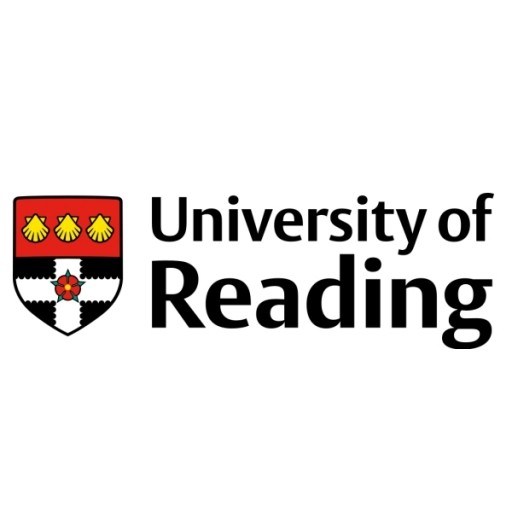Photos of university / #uniofreading
Ancient History at the University of Reading offers students an immersive exploration of the civilizations that shaped the foundations of Western culture and beyond. This comprehensive programme provides a deep understanding of the political, social, cultural, religious, and economic aspects of ancient societies from early Egypt, Mesopotamia, Greece, and Rome to later periods. Throughout the course, students engage with primary sources, archaeological findings, and contemporary scholarship to critically analyze the development, interactions, and legacies of ancient civilizations. The programme is designed to develop both your critical thinking and research skills, enabling you to interpret complex historical evidence and articulate well-supported arguments. You will have the opportunity to study a diverse range of topics, including ancient myths, philosophy, art and architecture, warfare, and daily life, thus gaining a holistic understanding of the ancient world. The curriculum integrates lectures, seminars, and practical sessions, fostering an engaging and interactive learning environment. In addition, students can participate in research projects, explore digital resources, and potentially undertake field trips to relevant archaeological sites and museums. The programme prepares graduates for careers in archaeology, museums, heritage management, education, research, and further academic study. With access to extensive university facilities, including experienced faculty members specializing in various aspects of ancient history, students will receive personalized guidance and support. Whether you are fascinated by the grandeur of ancient empires or intrigued by the everyday lives of ancient peoples, this course offers a unique opportunity to understand the past's enduring influence on contemporary society. Join us at Reading to uncover the stories of antiquity and develop skills that will benefit your academic and professional future.
Year 1
Core modules include:
- Greek History: War, Society and Change in the Archaic Age
- Roman History: The Rise and Fall of the Republic
Optional modules include:
- Ancient Song
- Texts, Readers, and Writers
- Latin at an appropriate level, from beginner to expert
- Ancient Greek at an appropriate level, from beginner to expert
- One or more modules from another department
Year 2
Core modules include:
- Greek History: Archaic Age to Alexander
- Roman History: From Republic to Empire
- Prospects for Classicists and Ancient Historians
Optional modules include:
- Ancient Epic
- Ancient Drama
- Latin at an appropriate level, from beginner to expert
- Ancient Greek at an appropriate level, from beginner to expert
- Work placement for Classicists and Ancient Historians
- Egypt & Greece
- Greek Comedy
- Modern Greek literature
- Ancient World on Film
- Roman Satire
- Voices from the Roman army
- Ancient Sport
- Classical Mythology in the Renaissance
- Museum History, Policy and Ethics
- Museum Communication and Interpretation
- A modern foreign language
- Practice of Entrepreneurship
- One or more modules from another department
Year 3
Core modules include:
- Dissertation
Optional modules include:
- Latin at an appropriate level, from beginner to expert
- Ancient Greek at an appropriate level, from beginner to expert
- Anatolia & the Aegean
- Alexander to Cleopatra: History & Culture of the Hellenistic World
- Digital Silchester
- Transformations of Helen
- Ancient Biography
- Greek Art & Drama
- Xenophon’s Anabasis
- Carthage – The Rise and Fall
- Ancient Egyptian Language and Hieroglyphs
- Athenian Political Thought
- One or more modules from another department
The Bachelor of Arts in Ancient History at the University of Reading requires students to engage with a comprehensive range of modules focusing on the history, culture, and civilizations of the ancient world. Students are typically expected to complete core modules that cover foundational topics such as Greek and Roman history, ancient philosophy, and classical civilization studies. In addition to these core modules, students have the opportunity to choose from a variety of optional modules that may include topics such as archaeology, ancient art and architecture, inscriptions and papyri, myth and religion in antiquity, and the legacy of the ancient world in later periods. The programme emphasizes developing skills in critical analysis, research, and scholarly writing, fostering a deep understanding of the historical contexts and cultural developments of the ancient civilizations.
Throughout the degree, students are encouraged to undertake independent research projects and may have the chance to participate in field trips or archaeological excavations as part of their practical learning experience. Assessment methods typically include essays, presentations, examinations, and a dissertation project focusing on a specific research question related to ancient history. The programme is designed to prepare students for careers in education, research, heritage management, and other fields requiring analytical and research skills. The duration of the full-time programme is usually three years, with options for part-time study. Entry requirements generally include a strong academic background in history, classics, or related disciplines, with specific grades specified upon application. Overall, this program aims to provide a thorough understanding of the ancient world, supported by expert instruction and access to a wealth of academic resources at the University of Reading.
The University of Reading offers a range of financing options for students enrolled in its Ancient History degree programs. Undergraduate students can explore various sources of financial support to help cover tuition fees and living expenses. These include government-funded bursaries, scholarships, and grants, which are available based on merit, need, or specific criteria such as residency or demographic background. The university also participates in the UK Government's student loan scheme, allowing eligible students to borrow funds to finance their studies, with repayment commencing after graduation once certain income thresholds are met. International students may have access to different funding opportunities, including external scholarships provided by governmental or private organizations, as well as university-specific scholarships aimed at attracting talented students from abroad. Additionally, the university provides information on part-time work opportunities both on and off-campus, enabling students to earn supplemental income during their studies. Financial planning is encouraged from the outset, with dedicated student finance advisors available to assist with budgeting and understanding the full scope of available funding sources. The university also emphasizes the importance of early application for scholarships and financial aid, as many funds are limited and awarded on a competitive basis. Costs associated with studying Ancient History include tuition fees, which vary depending on the level of study and student residency status, as well as accommodation, textbooks, and personal expenses. For students interested in postgraduate studies, there are specific funding opportunities such as research council grants, international fellowships, and university bursaries designed to support advanced research projects in Ancient History. Overall, the University of Reading aims to make higher education accessible and affordable through a comprehensive suite of financial aid options, ensuring that students can focus on their academic and personal development without undue financial burden.
The Bachelor of Arts in Ancient History at the University of Reading offers students a comprehensive exploration of the history, culture, and civilizations of the ancient world. This programme is designed to provide a thorough understanding of the social, political, and cultural developments that shaped ancient societies such as Greece and Rome, as well as other significant civilizations in the Mediterranean and Near Eastern regions. Students will engage with a wide range of sources, including archaeological findings, ancient texts, and material culture, to develop critical analytical skills and a nuanced appreciation of ancient history's complexities.
The course curriculum typically covers key themes such as political structures, warfare, religion, daily life, and the legacy of antiquity in the modern world. Students will have opportunities to examine primary sources closely, interpret archaeological evidence, and participate in discussions about historiographical debates. The programme often incorporates modules on ancient language skills, enabling students to read primary sources in Latin or Greek, thereby gaining direct access to original texts and inscriptions.
The University of Reading's facilities support this learning approach with extensive library resources, access to digital databases, and opportunities for actual archaeological fieldwork and internships. The programme is suitable for students interested in history, archaeology, classical studies, and related disciplines, and it often attracts those with a passion for understanding the foundations of Western civilization.
Graduates from this programme are well-equipped for careers in education, research, museums, cultural heritage management, and other fields requiring strong analytical, research, and communication skills. The programme emphasizes independent study, critical thinking, and the development of a broad, informed perspective on the ancient past, preparing students for postgraduate study or diverse professional pathways in the heritage and academic sectors.

